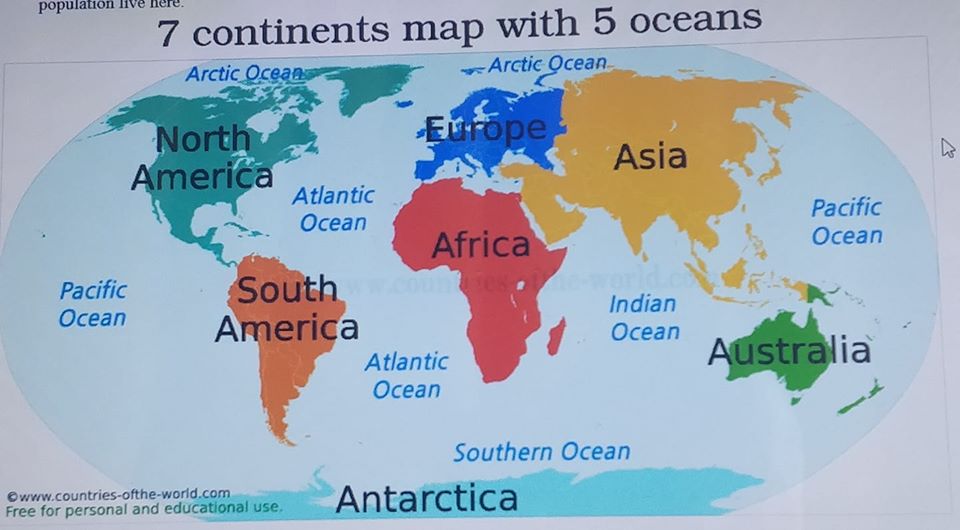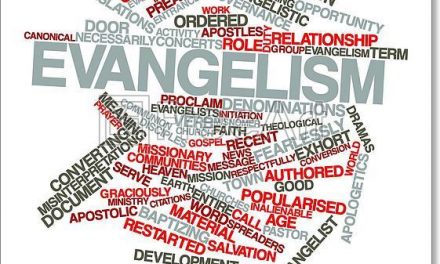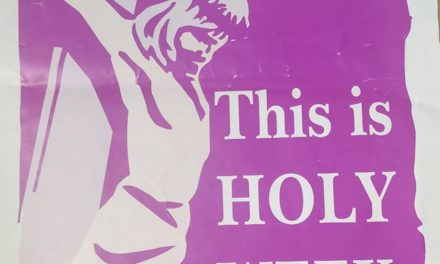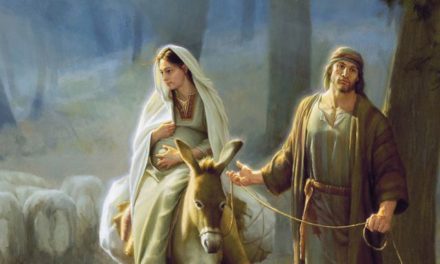“… all the evil of the twentieth century is possible everywhere on earth” – Aleksandr Solzhenitsn
Someone asked me recently, “Does the church still have moral ground to call the government to order?” A divided world shaped by therapeutic culture and ideology made of lies has conquered the churches, hence ‘the idea of bearing pain for the sake of truth seems ridiculous.’ The changing and jargon languages in world politics and secularisation imposes on the church and society controls the categories in which people think. Rather for the church to turn this divided world upside down with the powerful gospel of Jesus Christ and to usher in His Kingdom of grace, redemption, righteousness, love and justice, the divided world is breaking God purpose for the home thereby declining the church and destroying nations with ideology made of lies.
Faithful and moral church can only call the government to order ‘in the context of fidelity to the full Christian moral and theological vision through which we understand the meaning and purpose of life.’ Tom Stuckey, a former President, Methodist Church in Britain, in his book, ‘Singing the Lord’s Song in a Strange Land: The Future of the Church in Britain; A Methodist Perspective, aptly points us to the state of the church today. Stuckey based on his wide experience across denominations ‘contends that Britain is a modern Babylon where mammon reigns. The Church has unconsciously absorbed the values of Babylon into its structures and strategies with the result that it has ceased to be prophetic. It has become a public utility offering cheap grace to a consumer public looking for peace and security in troubled times.’[1] Babylonian values and ‘powers symbolise the world political, economic and religious forces and systems of inequality and injustice and constitute a destructive way of life for the common people and creation.’ The concept of Babylon resonates with the Biblical symbol utilised in the book of Revelation 19-17 and Psalm 137 ‘as an evil spiritual forces that mitigates against renewal and ‘upliftment’ of the human spirit.
The church that has consciously and unconsciously absorbed the values of Babylon have no moral ground or prophetic power to criticise the government except, ‘after a radical repentance, at all levels of its life, can the Church recover its integrity and grow.’ When the church becomes a public utility offering cheap grace, goods and service especially to 21st century Christian located in a modern Babylonian captivity, its ‘seek to tame God and fail to grasp that the cross exposes the darker side of human progress.’ The church is called to be counter-cultural unlike the army and police used by the State as their representatives to uphold unholy, immoral and unjust laws with their violence and corrupt behaviour.
The created institutional Babylonian values, blockages and structures declines and denies any revelation of divine truth outside the secular system and captivity modes. Hence, the decline of a proper understanding of “Church” has degenerated into a refusal to accept marital and “religious values” in political life therefore, a dark epiphany in diminished scriptural holiness is enveloping the world. Liberal theology that shapes academic training and dominated by sterile biblical criticism declines a personal faith in Jesus Christ. This age is on the verge of darkness because populism is challenging acceptable standards of Scriptural holiness. A divided world based on its political ideology encourages the freedom of conscience that leads to the pluralism of beliefs and philosophies within society. Resultantly, we are in the post-truth age where ‘borders blur between truth and lies, honesty and dishonesty, fiction and nonfiction. Deceiving others becomes a challenge, a game, and ultimately a habit.’[2] The ideology of a divided world is made with dictatorship of lies, breaking homes, churches and nation, ‘never knowingly support lies.’
The post-truth and contemporary era of church and political leadership in many influential churches and nations can best be described as the ‘ascendancy of moral lowlifes.’[3] Francis Schaefer’s classification of the era of the Trumpocalypse, the re-ascendancy of white supremacy ideology[4] resonates with the ‘ascendancy of moral lowlifes’ through the State systematic and Babylonian destructions of church, home and nations institutions. Good and evil has become a matter of power dynamics coupled with a utopian vision seeking to rewrite history and reinvent language to reflect ideals of totalitarianism’s false messages and deceit.
The ‘ascendancy of moral lowlifes’ nurtured by ‘politically correct intelligentsia’ is redefining the model of church doctrine, governance and spiritual discourse. Just as the missional theology and agenda of the church embraces the politics of Jesus, State ideology enslaves and controls the church as a captive in order to serve its political, totalitarian, and immoral agenda. Missional theology and agenda of the church equips the people of God for holy life-giving ministry and mission even beyond the walls of the church. Missional theology and agenda of the church inspires integrity, legitimacy, credibility and authenticity of Christian and political leaders not just ‘by their educational achievement and competence but also by practical expressions of being the gospel that results in life-transforming relationships.’[5]
Ascendancy of moral lowlifes in a divided world points to ideology with promises that the church system as a public utility is better able to deliver better services and rights to meet the needs of the people.[6] Leadership addicted to their own narrow self-interest has to a great extent failed to provide good quality of spirituality and governance hence ascendancy of leadership moral lowlifes. State ideology undermines the spirituality and obedience to God’s Word. State ideology shaped by unaccountability of the leadership who is amoral ‘consistently lie without shame and never apologise, if caught red-handed and lie again.’ State ideology promotes supports for loyalists who never question their leader who easily mis-educate their faith community into support of evil and greed.
The church ministry, theology, and mission are increasingly under real threat to be co-opted as a partner with the State to promote ascendancy of moral lowlifes and lies. Just as the thief comes to steal and to kill, ‘the dehumanising agenda of the global economic forces of empire … facilitate the flow of wealth and power from vulnerable persons, communities, and countries to the more powerful.’[7] A deeply divided world shaped by State totalitarian ideology of lies continues to break homes, churches, and nations, resulting to the contemporary changing global moral, ethical, political and economic landscape.
The question is, in a deeply divided ‘Babylonian’ world, what is the missional identity and vocation of the church, the body of Christ, not the body of the State? What are things central to the missional identity of the church as the gathered people of God (ecclesia) who are called and sent by the Missio-Dei? The missional status of the church necessitates modelling the politics of Jesus that risks putting up resistance against all threats that prevent people and the church from experiencing fullness of Christ’s life and holiness. The politics of Jesus is counter-cultural not compro-cultural. The church that refused to be prophetic to the State, becomes the puppet of the State, knowingly and unknowingly supporting and spreading lies.
The most urgent missional agenda for the church in the world is to ensure that its identity, vocation and witness are consistently given to teaching, preaching, prophecy, and mission action that builds authentic holy human relationships modelled on the praxis of Jesus. An important church’s missional identity as a body of Christ is to sets the missional agenda for this ‘gathered people’ who are commissioned to serve the divided world in his name.
The problem in the church today is not the profession of faith but familiarity with the profession of faith that breeds indifference to the Word of God, holiness, miracles, hell and eternity. Like Gehazi in the Old Testament who received the grace of being with Elisha in vain, despite his long association with Elisha had learned nothing but lying to God and man. He got more than he expected, to him and his race for ever, ‘Naaman’s leprosy shall cling.’ Today, the church faced with the Naaman’s’ of the world – the best generals, theologians, philosophers and many more is breeding indifferences to the Truth of God’s Word hence we are leprous, infected with sin, decline, and death. Let us pray for Gehazi – the church, old and young generation for mercy, repentance, healing and renewal.
Like Saul, the church have plenty of excuses for
disobedience, But Samuel zeroed in on the real issue, ‘Thou has not kept the
commandment of the Lord.’ Do you often gloss over your mistakes and sins,
trying to justify and spiritualize your actions because of the ‘culture’ or
‘position’ or ‘special’ circumstances? Our excuses, however, are nothing more
than disobedience. God knows our true motives. He forgives, restores, and
blesses only when we are honest about our sins. By trying to hide his sins
behind excuses, Saul lost his kingship. I pray for someone you will repent in
Jesus name so as not lose your destiny as you stop hiding your sins and
supporting ideology made of lies in a divided world.
[1] Stuckey, Tom, Singing the Lord’s Song in a Strange Land: The Future of the Church in Britain; A Methodist Perspective (Aberystwyth: Church in the Market Place Publications, 2017), bp.
[2] Keyes, R., The post-truth era: Dishonesty and deception in contemporary life, http://www.ralphkeyes.com/the-post-truth-era/
[3] Hewitt, R.R., The Moral lowlife in political culture, http://jamaica-gleaner.com/gleaner/20100903/cleisure/cleisure2.html
[4] Schaefer, F., How to survive Trumpocalypse, http://www.patheos.com/blogs/frankschaeffer/2017/01/survive-trumpocalypse-build-better-america-2017-new-years-resolution-actually-make-america-better/
[5] HTS Theological Studies, Herv.teol.stud. vol..73 n.3 Pretoria
[6] Hewitt, R.R., ‘Spirituality for democracy: Spiritual resources for democratic participation in the 21st century’, Verbum et Ecclesia, AOSIS Publishing Services, Cape Town http://verbumetecclesia.org.za/index.php/VE/article/view/1345/2247
[7] The Accra Confession, https://presbyterian.typepad.com/files/accra-confession.pdf











Recent Comments